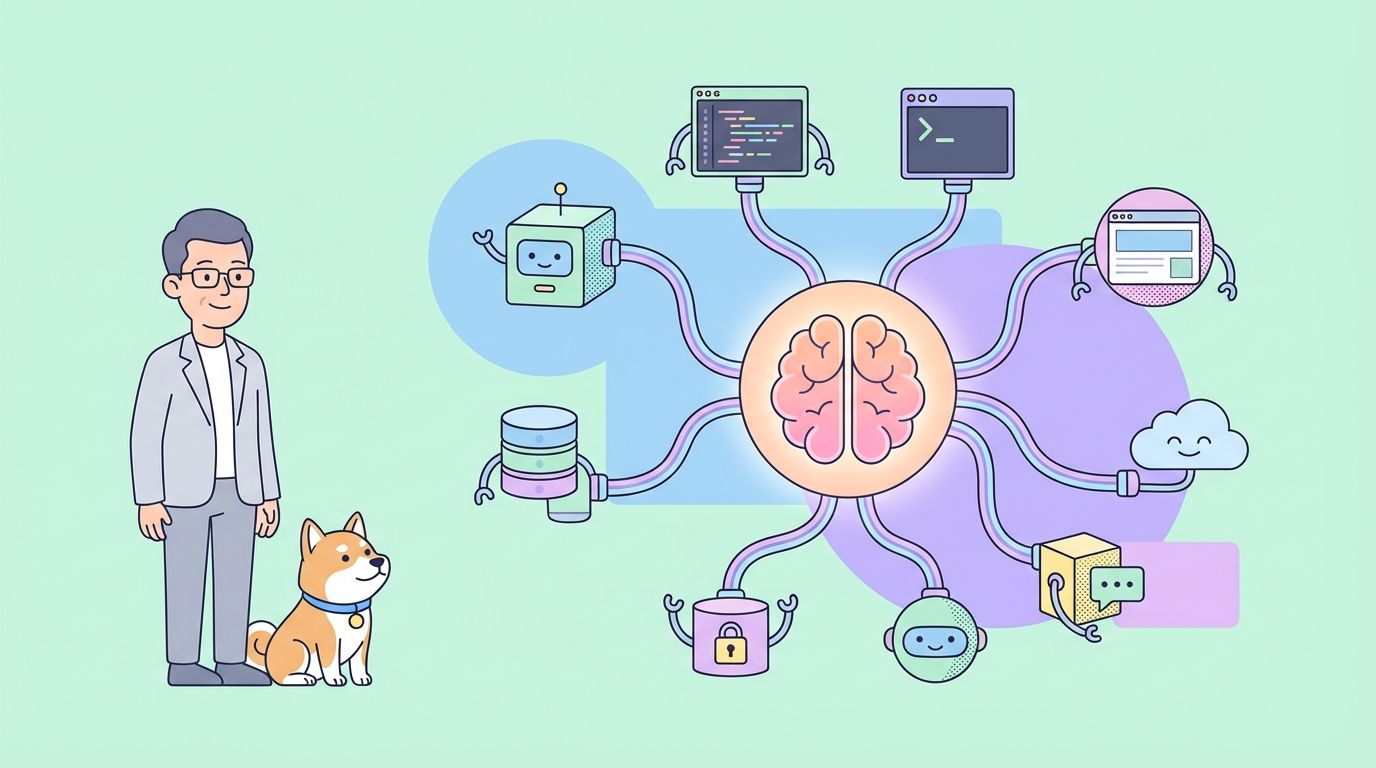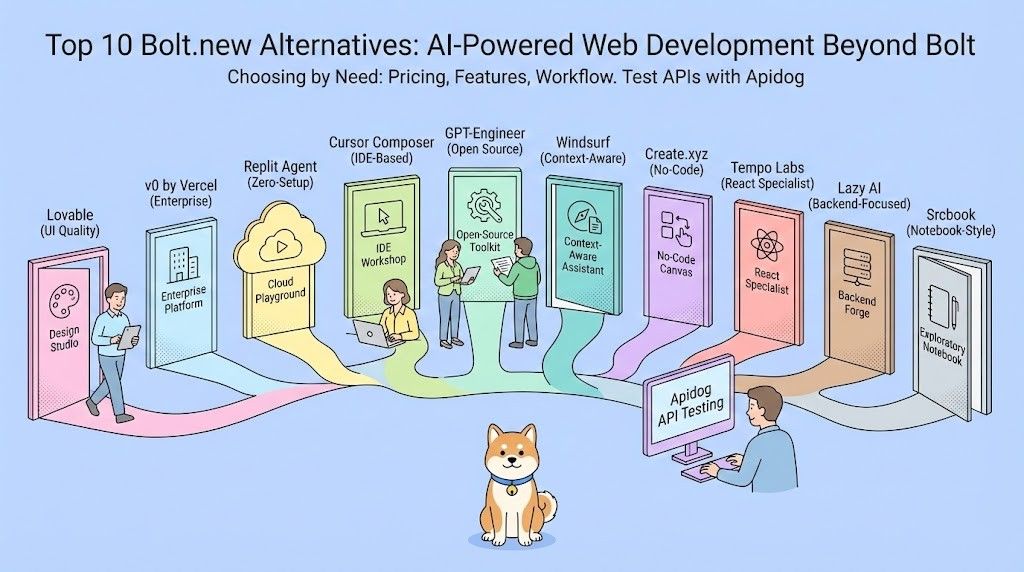The rapid evolution of artificial intelligence (AI) has brought forth two of the most advanced large language models: OpenAI's GPT-4 and Google's Gemini. Both models represent significant advancements in AI technology, but they differ in architecture, capabilities, and applications. This article delves into a detailed comparison of GPT-4 and Gemini to determine which AI model might be considered superior based on various criteria.
Apidog provides a developer with all the necessary functionalities for the entire API lifecycle. With code generation, CI/CD integration, and customizable scripts, whip up apps in no time!
To learn more about Apidog, click the button below!

Overview of GPT-4

GPT-4, developed by OpenAI, is a multimodal large language model that builds on the success of its predecessors. It is capable of handling both text and image inputs, making it versatile in generating human-like responses across different media. GPT-4 has been praised for its ability to solve complex problems, generate creative content, and provide accurate factual responses.
Overview of Gemini

Gemini, developed by Google, is designed as a multimodal AI model capable of processing text, audio, video, images, and code. It employs a Transformer-based architecture that mimics neural processes akin to the human brain. Gemini is optimized for various tasks including content creation, language translation, and complex problem-solving.
Tabulated Capabilities Comparison
| Feature | GPT-4 | Gemini |
|---|---|---|
| Multimodal Processing | Text and images | Text, audio, video, images, and code |
| Text Generation | High-quality text generation | Creative and engaging text formats |
| Language Translation | Strong translation capabilities | Seamless language translation |
| Problem-Solving | Advanced reasoning and problem-solving | Creative problem-solving with pattern recognition 2 |
| Code Generation | Proficient in code generation | Innovative code generation beyond basics |
| Integration | Primarily used in OpenAI's ecosystem | Integrated with Google products |
Performance Benchmarks
In benchmark tests, both models exhibit strengths in different areas:
- General Reasoning and Comprehension: Gemini slightly outperforms GPT-4 Turbo in general reasoning tasks.
- Mathematical Reasoning: GPT-4 Turbo shows superior performance in complex mathematical problem-solving.
- Code Generation: GPT-4 Turbo leads in Python code generation tasks5.
- Image Understanding: GPT-4 Turbo excels in interpreting visual information compared to Gemini.
Technological Infrastructure
GPT-4 is built on Microsoft's Azure AI supercomputers, allowing it to scale efficiently and deliver robust performance globally.
In contrast, Gemini utilizes Google's Tensor Processing Units (TPUs), which are tailored for extensive machine learning tasks and offer flexibility from data centers to mobile devices.
Applications and Use Cases
Both models have diverse applications:
- GPT-4 is widely used in educational tools like Duolingo for language learning and Khan Academy for tutoring. It also aids in accessibility through applications like Be My Eyes.
- Gemini powers various Google services such as Search, YouTube, and Gmail. Its ability to handle multimodal inputs makes it suitable for complex tasks across different domains.
Safety and Reliability
OpenAI has focused significantly on making GPT-4 safer by reducing the likelihood of disallowed content responses by 82% compared to its predecessor. It also emphasizes factual accuracy with a 40% improvement over previous models. Google's Gemini also prioritizes reliability and scalability but details on its safety measures are less documented compared to GPT-4.
Fully Benefit From Gemini or ChatGPT 4 By Using their APIs with Apidog
Have complete control over ChatGPT 4 and Gemini's power by utilizing their APIs with Apidog! We also have an article that shows how to implement the Gemini API with Apidog.

Viewing API Responses with Apidog

To view API responses using Apidog, begin by selecting an API request and clicking on the Edit header. This will allow you to scroll down and view the API response that the API can return.
Adding a New Type of Response to Your API Using Apidog

Within this section, you also have the option to create a new API response featuring a unique JSON code that will be returned to the client. Start by clicking the + Add button, then select Add Blank Response.

A pop-up window will appear at this stage. Here, it is important to choose the correct HTTP status code and provide an informative name so that other users can understand the response code's purpose without any ambiguity.

You can further customize your new response code using various operations available in Apidog. You have the option to craft a sample JSON code response manually or utilize an existing framework. Additionally, you can generate relevant coding for your response structure, making it ready for use with just a few clicks.

Moreover, you can decide on the data type that your response should return to clients. This feature in Apidog ensures that your APIs do not return invalid responses due to data type mismatches.
Conclusion
Determining which AI model is "better" depends largely on the specific needs and applications.
- GPT-4 shines with its strong performance in mathematical reasoning, code generation, and image understanding. It is particularly suited for applications requiring high accuracy and creativity in text-based outputs.
- Gemini, with its broader multimodal capabilities including audio and video processing, is ideal for applications needing comprehensive multimedia handling and integration with Google's ecosystem.
Ultimately, the choice between GPT-4 and Gemini should be guided by the specific requirements of the task at hand—whether it demands advanced text manipulation or a more integrated multimedia approach. Both models represent the pinnacle of current AI technology, each excelling in different domains.



